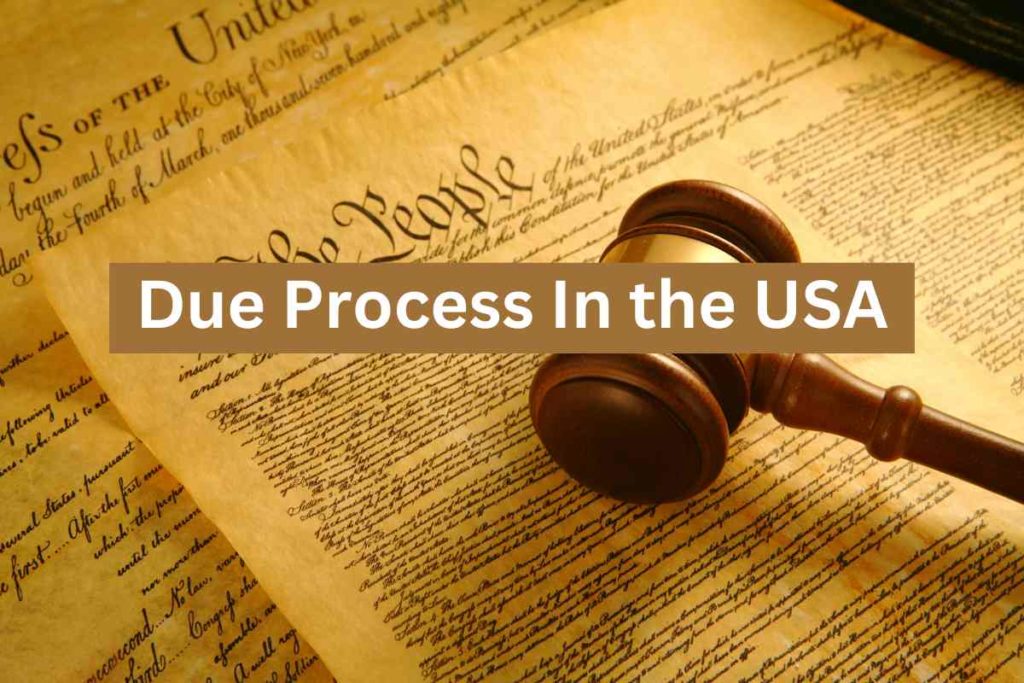Due process is a fundamental principle of the United States Constitution that ensures the protection of individual rights and the fair treatment of all citizens under the law. This blog post aims to provide an in-depth understanding of the due process, its origins, the different types of due process, and its application in various legal contexts. By exploring these topics, we aim to foster a well-informed dialogue about this essential aspect of American constitutional law and the role it plays in preserving individual liberties and the rule of law.
The Origins of Due Process
Historical Background
The concept of due process has its roots in the Magna Carta, a 13th-century English charter that laid the foundation for the protection of individual rights and liberties.
The United States Constitution
Due process is enshrined in the Fifth and Fourteenth Amendments to the United States Constitution, which guarantees that no person shall be “deprived of life, liberty, or property, without due process of law.”
Types of Due Process
A. Procedural Due Process
Procedural due process refers to the legal procedures and safeguards that must be followed by the government when depriving an individual of their life, liberty, or property rights.
- Notice and the Opportunity to Be Heard
- The Right to Counsel
- The Right to a Fair and Impartial Tribunal
- The Right to Appeal
B. Substantive Due Process
Substantive due process pertains to the protection of fundamental rights and liberties that are considered essential to the concept of ordered liberty and cannot be infringed upon by the government without a compelling reason.
- The Right to Privacy
- The Right to Marry
- The Right to Raise One’s Children
- The Right to Bodily Autonomy
Due Process in Various Legal Contexts
A. Criminal Law
In criminal law, due process is essential to ensuring that defendants receive fair trials and are protected from arbitrary government actions.
- The Presumption of Innocence
- The Right to a Speedy and Public Trial
- The Right Against Self-Incrimination
- The Right to Confront Witnesses
- The Right to a Jury Trial
- The Protection Against Double Jeopardy
- The Protection Against Cruel and Unusual Punishment
B. Civil Law
Due process also plays a crucial role in civil law, where it helps maintain a fair and impartial legal system that protects individual rights and promotes the resolution of disputes.
- Access to the Courts
- The Right to a Jury Trial in Civil Cases
- The Right to Present Evidence and Argue One’s Case
C. Administrative Law
Due process is equally important in administrative law, ensuring that government agencies adhere to fair procedures when making decisions that impact individual rights and interests.
- Notice of Agency Action
- The Right to a Hearing
- The Right to Judicial Review
Conclusion
Due process is a cornerstone of the United States Constitution and a vital safeguard for individual rights and the rule of law. By understanding the history, types, and applications of due process, we can better appreciate its significance in maintaining a just and democratic society. As we engage in discussions about the role of government, individual liberties, and the legal system, it is essential to be well-informed about the principles of due process and their importance in preserving the fairness and integrity of our constitutional framework.
